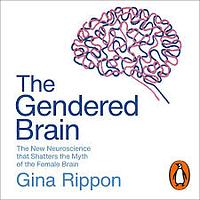Take a photo of a barcode or cover
227 reviews for:
The Gendered Brain: The New Neuroscience That Shatters the Myth of the Female Brain
Gina Rippon
227 reviews for:
The Gendered Brain: The New Neuroscience That Shatters the Myth of the Female Brain
Gina Rippon
informative
medium-paced
medium-paced
informative
reflective
slow-paced
informative
inspiring
informative
inspiring
reflective
medium-paced
challenging
informative
slow-paced
Lots of excellent information, but quite dry. I found the audiobook much more approachable than the print.
Graphic: Misogyny, Sexism
informative
slow-paced
This is interesting enough but doesn't add anything to previous books on the topic--effectively, that much research on sex/gender differences is poorly done or poorly reported; that differences do not appear to be innate from birth; and that our brains are plastic and that differences develop over time. At least some of those differences are due to socialization or life experience.
Given the rise in gender-critical/transphobic feminism in the UK I was a little apprehensive that it might make its way in, since this research has potential implications for trans people. Instead, she mostly avoids the topic until the end. Her summary on the topic is a little weaselly, unnecessarily so--even if we presume that there are few innate biological differences in male and female brains, all that does is suggest that it isn't the source of gender identity, since we all develop one, not that gender identity is not real or has no meaning.
Given the rise in gender-critical/transphobic feminism in the UK I was a little apprehensive that it might make its way in, since this research has potential implications for trans people. Instead, she mostly avoids the topic until the end. Her summary on the topic is a little weaselly, unnecessarily so--even if we presume that there are few innate biological differences in male and female brains, all that does is suggest that it isn't the source of gender identity, since we all develop one, not that gender identity is not real or has no meaning.
Excellent book, though one that moves far beyond gender into the methods of science and of different sciences: social science, cognitive science, neuroscience, genetics, psychology and more... It is quite a technical read but worth its diligence because it sheds light on how we establish evidence, and how frequently this evidence is manipulated or transformed.
Spoiler: in essence there is no clear gendered brain, their individual variability is larger than any gender signal. The author however does not get to this till the end of the book and as such she works through many details which are fascinating in their process technology and perverse in their manipulation of tools.
The one big issue I have is that the author did not include philosophy as part of an investigation that is very close to problems of what is knowledge, truth, fact, measurement, definition etc... so that in many parts of the book the author takes as evidence a measure in the brain that may well not mean anything even if tightly correlated to its label. The reader remains exposed to neurojunk because they are not led through what we mean by knowledge, which sure,
would be a huge discussion but could be resolved quite simply with ideas of scientific consensus.
Frances Edwards who I was lucky enough to learn some Neuroscience from explained that something in these fields is only true when you have three corroborating studies where at least one is an independently funded population stufy with 1000s of subjects. Then it is true... everything else is still speculative evidence.
Spoiler: in essence there is no clear gendered brain, their individual variability is larger than any gender signal. The author however does not get to this till the end of the book and as such she works through many details which are fascinating in their process technology and perverse in their manipulation of tools.
The one big issue I have is that the author did not include philosophy as part of an investigation that is very close to problems of what is knowledge, truth, fact, measurement, definition etc... so that in many parts of the book the author takes as evidence a measure in the brain that may well not mean anything even if tightly correlated to its label. The reader remains exposed to neurojunk because they are not led through what we mean by knowledge, which sure,
would be a huge discussion but could be resolved quite simply with ideas of scientific consensus.
Frances Edwards who I was lucky enough to learn some Neuroscience from explained that something in these fields is only true when you have three corroborating studies where at least one is an independently funded population stufy with 1000s of subjects. Then it is true... everything else is still speculative evidence.





